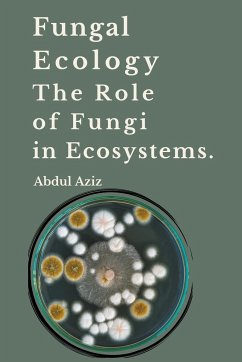Overview of Fungal Ecology. A diverse group of organisms, fungi are essential to the cycling of nutrients, symbiotic connections, and decomposition processes in ecosystems. The scientific study of fungus and their surroundings, including their roles, functions, and effects on ecosystems, is known as fungal ecology. Comprehending the intricate dynamics of ecosystems and tackling issues like nutrient cycle, biodiversity loss, and the sustainability of natural and agricultural systems necessitates an understanding of fungal ecology. The Fungi Kingdom. A different kingdom exists for fungi than it does for bacteria, plants, and animals. This enormous kingdom is home to a wide variety of creatures, such as molds, mushrooms, and yeasts. The distinctive way that fungi feed themselves-they are heterotrophic, meaning that they get their nutrients from outside digestion-defines them. Fungi do not have chlorophyll and are unable to photosynthesize, unlike plants. Rather, they release digestive enzymes that disassemble organic stuff into smaller forms that they may later ingest. Fungi's Ecological Functions. Fungi have a variety of roles in ecosystems and occupy a wide range of ecological niches. The cycling of nutrients is one of their primary functions. Fungi are essential to the breakdown of organic materials because they can convert complex compounds into simpler ones. In order to recycle nutrients, make them available to other creatures, and maintain the general health of ecosystems, this decomposition process is essential.








